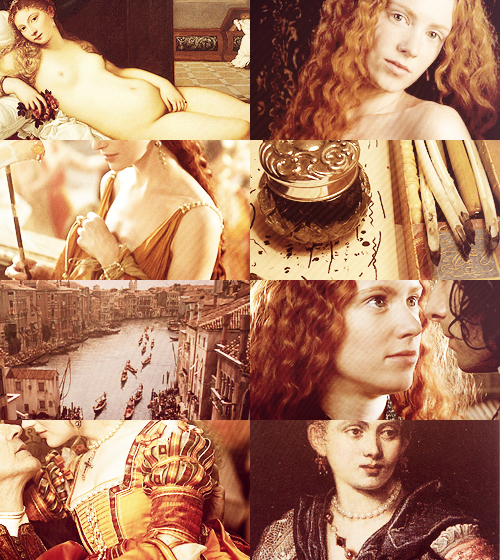fuckyeahrenaissancewomen:Women of the Italian Renaissance | VERONICA FRANCO (1546-1591)I will make y
fuckyeahrenaissancewomen:Women of the Italian Renaissance | VERONICA FRANCO (1546-1591)I will make you taste the delights of lovewhen they have been expertly learned;And doing this, I could give you such pleasurethat you could say you were fully content,and at once fall more deeply in love.So sweet and delicious do I become,when I am in bed with a manwho, I sense, loves and enjoys me.Veronica Franco was one of the most famous Venetian courtesans of her time — a cortigiana onesta, or “honest courtesan”, who earned patronage and social status through her beauty, wit, charm, intelligence and refinement. She is remembered today not only for her profession, but for her writing and poetry, through which she emerges as one of the most original female voices of 16th century Venice.The only daughter in a family of three sons, Veronica was educated by private tutors alongside her brothers, developing an appreciation of Italian literature and studying translations of classical texts. She married young, sometime in her mid-teens, but the union ended poorly and she separated from her husband soon after. Unable to reclaim her dowry and in need of a means to support herself, Veronica became a courtesan under the tutelage of her mother — a former cortigiana onesta herself — who acted as a go-between, arranging Veronica’s appointments and collecting her fees.By the time she was twenty, Veronica was one of the most popular and respected courtesans in Venice. Her clientele included men from the highest levels of society; she even had a brief liaison with King Henry III of France. By the 1570s, she was a part of one of the most prestigious literary circles in the city, participating in discussions and contributing to and editing anthologies of poetry.In 1575 she published a volume of her own poetry. Unlike other courtesan poets of her time, she makes no attempts in her writing to hide her profession; she was not ashamed of being a courtesan but rather celebrated it, and did not shy from erotic or sexually explicit poetry. When she was attacked in a series of vicious and obscene poems, she defended herself with eloquence and dignity.Unfortunately, her success was not to last. Soon after her book was published, plague broke out in Venice, forcing Veronica to flee. She returned two years later to find her house looted and most of her possessions (including a library that was among the best private collections in Europe) gone. The plague had also claimed the lives of her mother and a brother, leaving her to care for her nephews along with her own children (she had six in all, three of whom died in infancy).In 1580, her sons’ tutor, Ridolfo Vannitelli, denounced her to the Inquisition on charges of witchcraft. Although she succeeded in securing an acquittal, aided by her connections among the Venetian elite, her reputation and her fortune had both suffered a serious blow. She ultimately spiralled into poverty, dying of a fever at the age of 45. -- source link
Tumblr Blog : fuckyeahrenaissancewomen.tumblr.com
